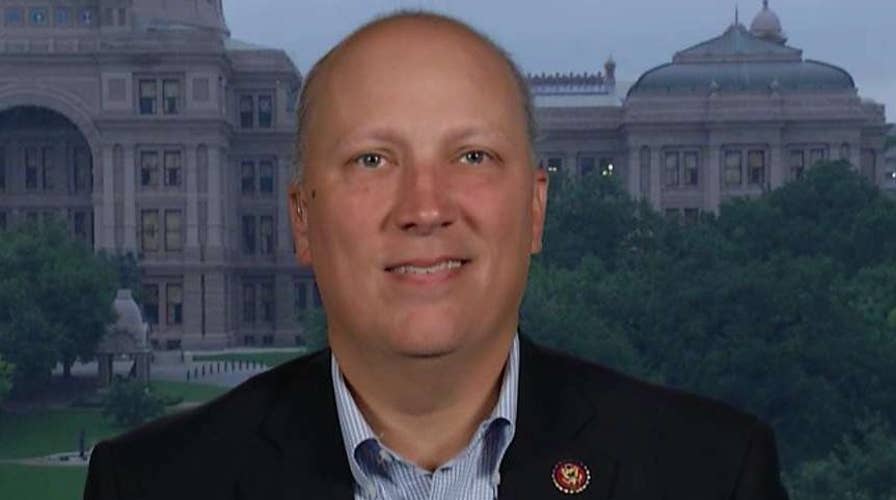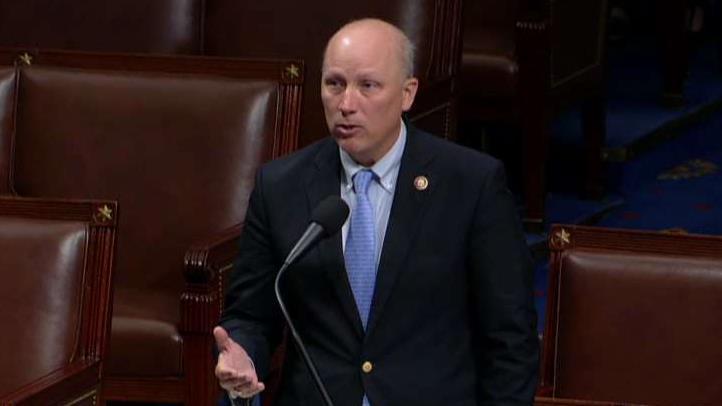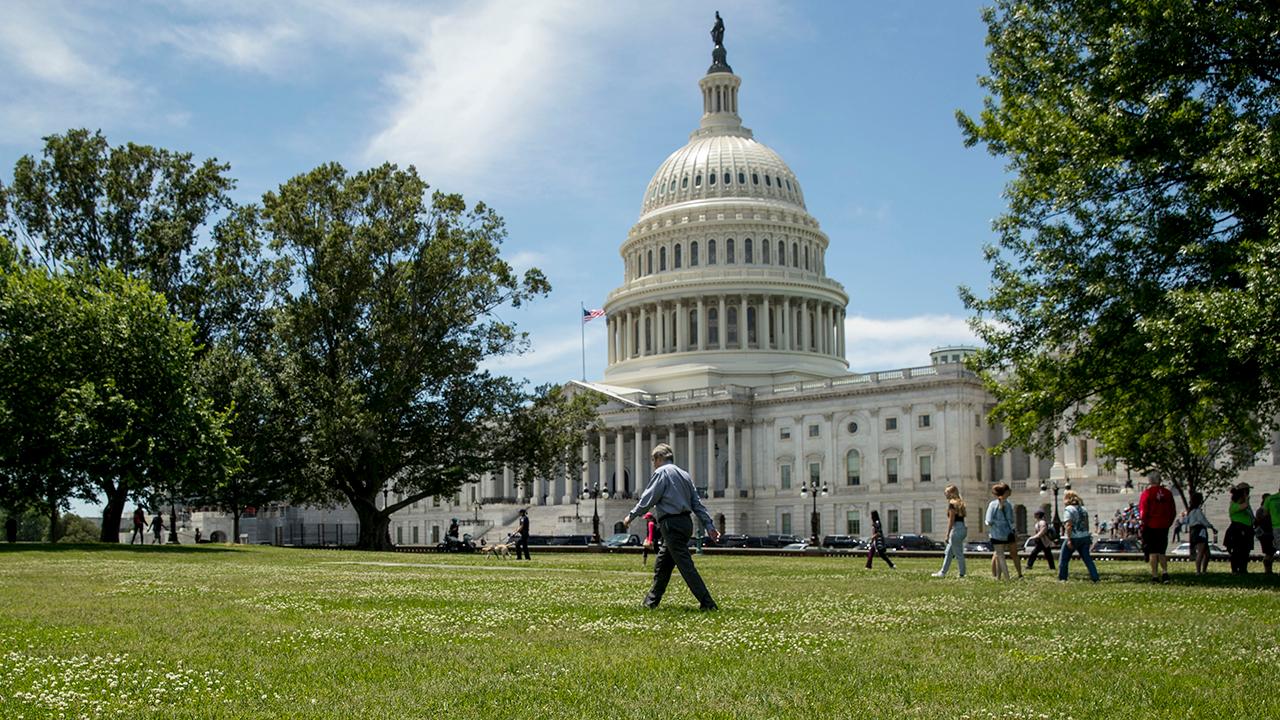Republican blocks disaster aid bill due to lack of border wall funding
Rep. Chip Roy responds to the backlash from the left on 'Fox & Friends.'
You can understand why so many people are confused this week.
Congress is supposed to be out of session.
But then the House keeps meeting, trying to pass a $19.1 billion disaster bill with almost no members present on the floor. Then a few Republicans stymie the bill. This sets off howls of protests from Democrats and some GOPers. The House can’t pass the disaster package for people needing relief from hurricanes in the South and floods in the Midwest.
$19 BILLION DISASTER AID BILL BLOCKED AGAIN IN THE HOUSE BY GOP DISSENTER
So, even though the House is “out” of session this week, everyone will just have to wait until the House is back “in” session next week and try again.
Confused?
Is the House in session this week? Kinda-sorta.
Is the House out of session this week? Kinda-sorta.
Let’s review:
The House and Senate are technically “out” of session this week. Both bodies usually ditch Washington for the Memorial Day recess. But neither body is truly off the hook this week.
Let’s go to the Constitution.
GOP LAWMAKER’S DELAY OF $19 BILLION DISASTER BILL DEMONSTRATES THE POWER OF ONE
Article I, Section 5 of the Constitution states that “Neither House, during the Session of Congress, shall, without the Consent of the other, adjourn for more than three days….”
In other words, if either body wanted to shake town for 72 hours, it would have to secure the blessing of the other.
To do so, both the House and Senate must adopt what’s called an “adjournment resolution.” From time to time, the House and Senate approve adjournment resolutions and really go on recess for more than a few days. The House and Senate often approve adjournment resolutions over the Thanksgiving and Christmas holidays, sometimes in the spring when lawmakers are absent for more than two weeks around Easter and Passover, for the fabled “August recess” and a host of other periods in between.
However…
Congress hasn’t approved many adjournment resolutions of late.
During the Obama Administration, Republicans in Congress were afraid to adjourn for more than three days. An adjournment resolution would expose GOPers to the possibility that President Obama could fill a key cabinet or judicial position with a “recess appointment.” The Constitution allows presidents to bypass Senate confirmation and directly install persons in administration posts if the Senate is adjourned.
These days, Democrats are afraid President Trump could try an end-run around the Senate and make various recess appointments. So the Democratic-controlled House has no interest in approving an adjournment resolution.
So, what does Congress do if it wants to take a recess and not convene for a few days?
Simple. The House and Senate majority leaders just don’t schedule major floor activity for a week or so. But, the House and Senate meet at three day intervals to satisfy the Constitutional requirement spelled out under Article I, Section 5.
These periodic meetings are often called “pro forma” sessions. That’s where the House and Senate meet for anywhere from 30 seconds to a few minutes – and immediately gavel back out. The Senate often executes the gavel-in, gavel-out callisthenic with only one senator present. The House may do the same, but sometimes two or three lawmakers show up.
“Pro forma” is Latin for “as if.” So, when the House and Senate convene in these abbreviated meetings, it’s “as if” all members are there. But don’t expect any legislative business.
Usually.
This is what brings us to the House trying to approve a bill with a little more than a few members on hand.
The Senate struggled for weeks to pass a disaster relief bill. President Trump and lots of Republicans hoped to latch border security and humanitarian help to the measure. But Democrats balked. Senate Majority Leader Mitch McConnell, R-Ky., declared that the Senate would vote on something related to disaster relief before the Memorial Day break. The House was slated to leave town midday on Thursday, May 23. A Senate deal finally came together in the early afternoon of the 23rd. The Senate approved the measure 85-8. But, most House members had dashed for the exits -- ready to be back in their districts for Memorial Day parades and other services.
Since lawmakers never considered an adjournment resolution for the “recess,” both the House and Senate were poised to meet in brief sessions on Friday, May 24. The Senate gaveled in and gaveled out. But the House hoped to align with the Senate and pass the disaster bill.
Three members were present Friday morning: Reps. Jim McGovern, D-Mass., Donna Shalala, D-Fla., and Chip Roy, R-Texas. The House would never take a full roll call vote on an issue with just three people in the chamber. That would mean that only three people are on the record, for or against a bill, and 430 other House members are left out. So, if there’s any business at hand, the House usually tries to approve the legislation via “unanimous consent.” In other words, all members on the floor have to agree. The vote must be “unanimous.” But if one lawmaker objects, it’s not unanimous. The bill is stalled.
Shalala asked that the House approve the disaster bill by unanimous consent. Roy objected.
The scenario repeated itself on Tuesday afternoon.
Rep. Jennifer Wexton, D-Va., presided. House Majority Leader Steny Hoyer, D-Md., made an appearance. Rep. Sanford Bishop, D-Ga., asked the House approve the disaster legislation by unanimous consent. Rep. Thomas Massie, R-K.Y., and Alex Mooney, R-W.Va., showed up. Massie objected to Bishop’s request, sidetracking the bill again.
So, eight lawmakers appeared for two different sessions as the House tried to advance a bill. Most members would tell you that Congress was on “recess.” Lots of aides were on vacation. Some doorways and passages around the Capitol were locked. Only a few members of the Capitol press corps showed up.
But was the House truly “on recess?” Not really. The House was trying to tackle legislative business. There just weren’t a lot of lawmakers there. Both brief House sessions lacked the usually pomp and circumstance. But, it’s hard to truly say that the House was “out.” And Congress certainly didn’t approve an adjournment resolution, granting leave to both bodies.
Hoyer says the House will attempt to pass the disaster bill again on Thursday. And if not, the full House will vote on the measure next week when everyone’s back.
After all, Congress has been out of session. Kinda-sorta. But paradoxically, also in session. Kinda-sorta.







